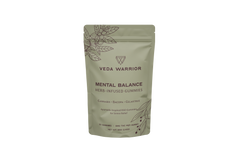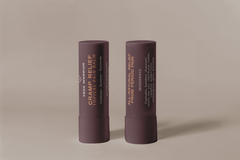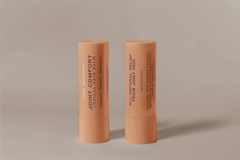What is chronic stress?

Do you feel heated, overly-emotional, unable to sit still? Maybe withdrawn, depressed, and lethargic? Or tense and frozen, almost paralyzed by the pressures of daily life?
If you’ve experienced these symptoms consistently and constantly over extended periods of time, you may be experiencing chronic stress.
Chronic stress occurs when our body experiences stressors so frequently or intensely that our ANS (autonomic nervous system) does not have a chance to relax and help us soothe ourselves. This leads to our body remaining in a constant state of physiological arousal.
This constant state of stress affects every system in our body in negative ways. Although some stress in our lives is healthy, humans were designed to handle acute stress, not chronic stress.
What is the difference between acute and chronic stress?
Imagine you’re about to give a speech in front of a large group of people. Your palms may sweat, you may feel hyper-aware of all that is going on around you, and you may feel your heart pumping in your chest. That is acute stress, and it can be very helpful in situations where we need to problem-solve or get sh*t done.
Imagine you’re working two jobs constantly, with no time to relax or enjoy activities that make you feel calm. Or maybe you live in a dangerous space where you always feel on-edge, unable to feel at peace. That is chronic stress.
Chronic stress results from repeated exposure to situations that lead to the release of stress hormones. This stress wears on your body and mind. Our natural physiological systems were not designed to be constantly activated and overused.
What are the long-term effects of chronic stress?
Chronic stress, left untreated, can create many mental and physical complications:
• Acne
• Depression
• Diabetes
• Eczema
• Heart disease
• High blood pressure
• Hyperthyroidism
• Irritable bowel syndrome
• Low sex drive
• Ulcers
• Weight changes

Finding ways to manage your chronic stress is important for overall well-being. Some may need professional treatment such as therapy or a visit to a naturopath, but you can also begin the process yourself with lifestyle changes and plant medicine.
4 ways you can help combat chronic stress today.
1. Make small but important lifestyle changes such as implementing a daily routine, getting more sleep, and engaging in more self-care practices.
2. Follow a diet that honors your individual needs and reduces stress in the body. Along with making sure you are getting enough water, incorporate foods such as whole-grain carbohydrates, healthy fats (avocados/nuts), fruits and vegetables high in Vitamin C, and dark leafy greens.
3. Engage in a movement and mindfulness practice. Even if it is only 10 minutes a day, a movement practice followed by a mindfulness practice can help reduce built-up stress in the body and help you handle new stress easier.
4. Incorporate plant medicine into your life. Make sure you are receiving all the nutrients and vitamins you need along with supplementing your body with plant-based medicine to help you stay balanced. Not sure where to start? Try our Focus + Balance capsules that contain 10 powerful intellect herbs and adaptogens that help you reduce stress and balance your mind-body.
Beat the chronic stress with our deeply calming & revitalizing herbs.
100% Plant-Based
Organic ingredients sourced from small regenerative farms.
Time-Tested Formulation
Designed by Ayurvedic doctors using 5,000 year old wisdom.

No Dangerous Side Effects
Skip the side effects caused by harsh pharmaceuticals.





